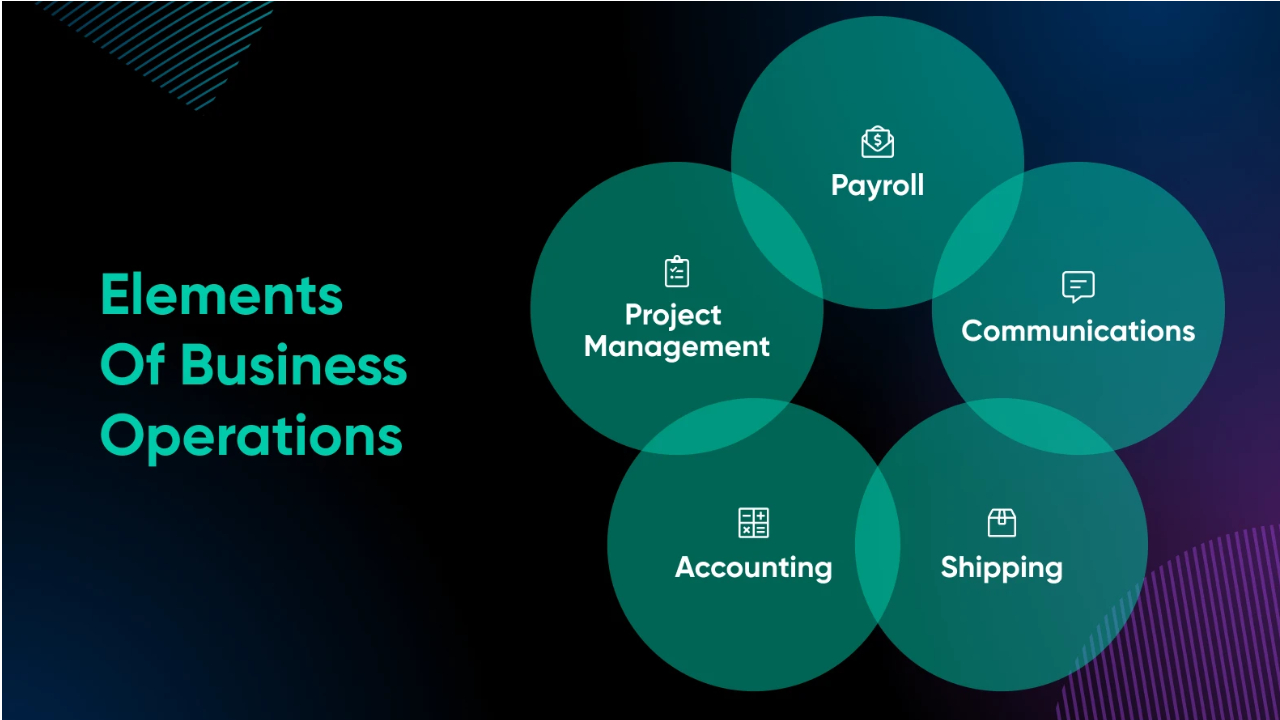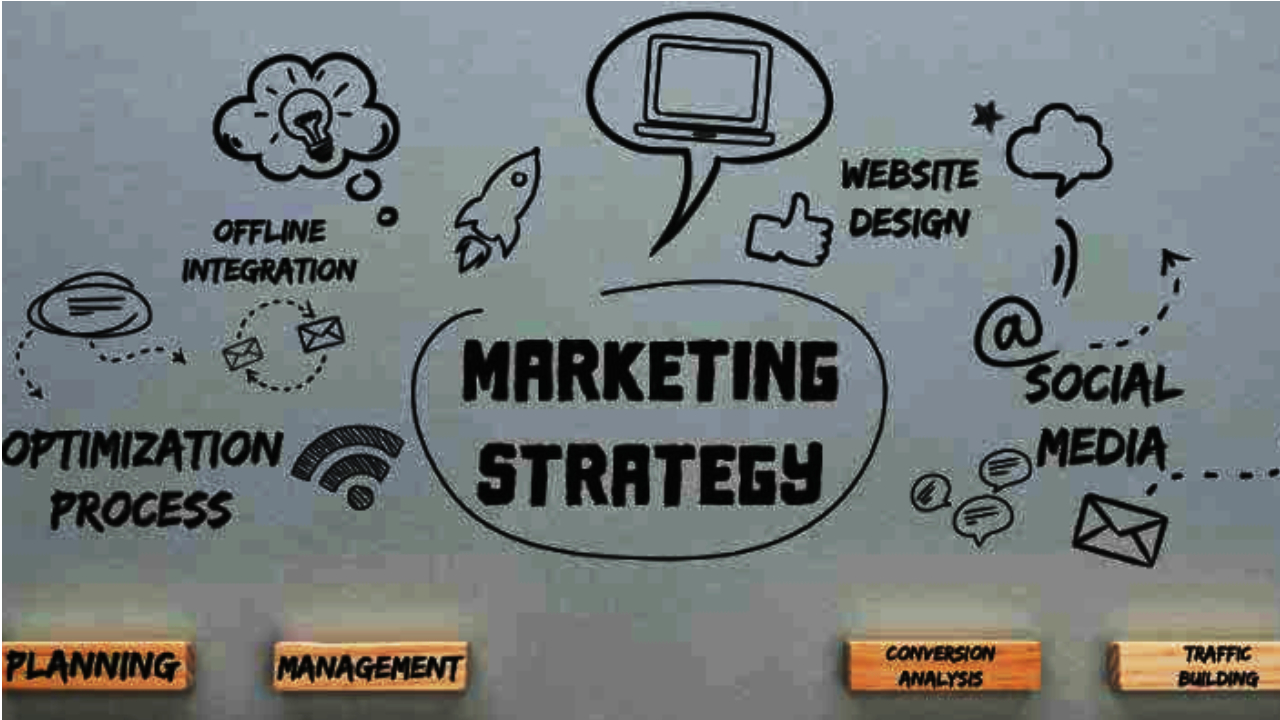Starting your own business. Entrepreneurship is a dynamic and multifaceted field that encompasses the process of initiating and managing a business venture. At its core, being an entrepreneur involves not only identifying a market opportunity but also mobilizing resources to capitalize on that opportunity. Entrepreneurs are often characterized by their willingness to take risks, innovate, and lead, reflecting a strong drive to create value in various contexts.
The motivations behind starting a business can vary widely among individuals. For some, the desire for independence is a strong motivating factor; they seek to assert control over their professional destiny and escape the constraints of traditional employment. Others may be driven by the pursuit of financial gain or the aspiration to turn an innovative idea into a profitable enterprise. Additionally, many entrepreneurs are motivated by a desire to solve problems or fulfill unmet needs within their communities or industries, contributing positively to society through their efforts.
As of 2023, the entrepreneurial landscape is vibrant and evolving. The rise of technology and digital platforms has created new avenues for aspiring business owners, enabling unprecedented access to markets and resources. However, this landscape is not without its challenges. Startups frequently face obstacles such as securing financing, navigating regulatory requirements, and establishing a customer base amidst fierce competition. Moreover, the operational demands of running a business can lead to significant stress and uncertainty, necessitating resilience and adaptability from entrepreneurs.
Despite these challenges, the rewards of entrepreneurship can be substantial. Beyond the potential for financial gain, many entrepreneurs find fulfillment in the freedom and creativity that business ownership offers. The ability to bring innovative ideas to fruition, make meaningful contributions to the economy, and positively impact the lives of others can be deeply gratifying. Therefore, understanding the fundamentals of entrepreneurship and preparing for both the challenges and rewards is essential for anyone considering this path.
Identifying Your Business Idea

Embarking on an entrepreneurial journey begins with the critical task of identifying a viable business idea. This process requires a structured approach, blending personal introspection with market analysis. Start by assessing your passions and skills. Reflect on what interests you most—hobbies, professional expertise, or unique talents—and consider how these can translate into a business. Leveraging your passions will not only fuel your dedication but will also give your business a personal touch that can resonate with customers.
Next, recognize market opportunities. Investigate current trends and demands within your industry of interest. Pay attention to gaps in the market where needs are unfulfilled or can be better met by existing offerings. Utilizing tools such as surveys, online forums, and social media platforms can provide invaluable insights into consumer pain points and desires. Additionally, engaging with potential customers through interviews or focus groups can offer firsthand perspectives that are crucial for shaping your idea.
Conducting competitor analysis is another essential step. Examine existing businesses within your targeted niche to understand their strengths and weaknesses. This information is vital for identifying areas where your business can stand out. Look at their pricing, customer service, and product offerings. Understanding your competition will not only inform your strategy but also help you position your brand more effectively.
Lastly, validating your business idea through market research is paramount. Test your concept through minimum viable products (MVPs) or pilot services to gauge customer interest and gather feedback. This step allows you to refine your idea based on real-world data and ensures that you are entering the market with a strong foundation. By thoughtfully assessing your passions, recognizing market opportunities, and conducting thorough research, you will be well-equipped to identify a promising business idea.
Developing a Business Plan

A well-structured business plan serves as a vital roadmap for any entrepreneurial venture. It provides a comprehensive overview of the business and outlines the essential components that define its strategy and direction. The first component is the executive summary, which offers a concise snapshot of the business, its mission, and its objectives. This section sets the tone and provides potential investors or partners with a quick understanding of the business concept.
Another integral part of a business plan is the market analysis. This section assesses the industry landscape, identifies target markets, and evaluates competitor positioning. Understanding market trends and customer preferences enables entrepreneurs to tailor their offerings effectively. Additionally, a robust organizational structure is essential; this outlines the management team, their roles, and the governance model ensuring clarity in operations and decision-making processes.
Details about the products or services are also critical in a business plan. This section should explain what is being offered, the value it provides, and how it stands out from competitors. Coupled with this is the marketing and sales strategies section, which defines how the business intends to attract and retain customers. This may involve outlining promotional tactics, pricing strategies, and sales channels, showcasing a well-thought-out approach to generating revenue.
Lastly, financial projections are a crucial aspect of any business plan. Here, entrepreneurs must provide a forecast of revenues, expenses, and profitability over a specified period. These projections not only guide the business’s strategic decisions but also play a significant role in securing funding. Investors and lenders seek assurance that the business can achieve profitability and sustain growth. Overall, a solid business plan is indispensable for guiding a new business and increasing its chances of long-term success.
Choosing the Right Business Structure

When starting a business, selecting the appropriate business structure is a crucial decision that can significantly impact your operations, liability, and tax obligations. The most common business structures include sole proprietorships, partnerships, limited liability companies (LLCs), and corporations. Each of these entities has distinct legal attributes and implications that aspiring entrepreneurs must carefully consider.
A sole proprietorship is the simplest form of business and involves one individual who owns and operates the venture. This structure offers complete control and straightforward tax implications, as business income is reported on the owner’s personal tax return. However, it does not provide personal liability protection, meaning that the owner’s personal assets may be at risk in the event of business debts or lawsuits.
Partnerships, formed by two or more individuals, share operational responsibilities and profit. Similar to sole proprietorships, partnerships do not offer personal liability protection, which raises the importance of creating a well-crafted partnership agreement. This document should outline each partner’s contributions, profit-sharing arrangements, and procedures for conflict resolution.
Limited liability companies (LLCs) combine the benefits of both partnerships and corporations. They provide personal liability protection for their owners, known as members, while allowing for flexible management structures and tax options. LLCs can be taxed as a corporation or pass-through entity, which may offer tax advantages depending on the specific circumstances.
Corporations represent a more complex structure, which is ideal for businesses looking to raise capital, attract investors, or eventually go public. They provide significant liability protection and have a formal structure governed by a board of directors. However, corporations are subject to more regulatory requirements and double taxation, meaning that both the corporation’s profits and the shareholders’ dividends are taxed.
In evaluating which business structure aligns best with your startup’s goals, it is essential to consider factors such as liability exposure, compliance obligations, and tax implications. Properly informing yourself about these structures can aid in making a well-rounded decision that supports your business’s longevity and success.
Funding Your Startup

When embarking on the journey of starting your own business, securing funding is a critical step that can significantly impact your venture’s success. Various funding options are available to new entrepreneurs, each with its unique advantages and challenges. Understanding these options is essential for selecting the most suitable path for your startup.
One of the most common sources of funding is personal savings. This option allows entrepreneurs to maintain full control over their business as they rely on their resources. However, utilizing personal savings carries the risk of financial strain should the business encounter difficulties. Hence, careful planning is essential if you choose this route.
Another popular funding avenue is obtaining a loan from banks or financial institutions. Traditional loans often require a robust business plan and collateral. However, they allow for significant capital infusion while preserving ownership. Entrepreneurs should be prepared to demonstrate their business’s viability during discussions with lenders.
Venture capital is a funding option often pursued by startups with high growth potential. Venture capitalists invest substantial amounts in exchange for equity. This can provide not only funding but also valuable mentorship and connections, although it often requires giving up some control over the business. Similarly, angel investors, who are typically wealthy individuals, can provide seed funding in exchange for convertible debt or ownership equity. Engaging with potential investors necessitates a well-crafted pitch and thorough preparation.
Crowdfunding has emerged as a modern alternative, leveraging platforms that allow entrepreneurs to gather small amounts of money from a large number of people. This approach often comes with the added bonus of validating the business concept through market interest. Regardless of the chosen method, effective financial management is crucial in the early stages of your startup. Monitoring cash flow, budgeting wisely, and keeping accurate records will help ensure sustainability and growth.
Setting Up Your Business Operations

Establishing your startup’s operations is crucial for long-term success and sustainability. One of the first steps in this process is selecting a suitable business location. The location should align with your target market and operational needs while considering factors such as accessibility, competition, and local regulations. A well-chosen location can enhance customer reach and operational efficiency, ultimately supporting your overall business objectives.
Once the location is identified, acquiring necessary licenses and permits is essential. Depending on your industry and jurisdiction, this may involve various regulatory requirements. Engaging with local and state authorities can streamline this process, ensuring that your operations are compliant with laws and regulations. Proper licensing not only legitimizes your business but also builds trust with your potential customers.
Setting up a reliable supply chain is another critical component of business operations. This involves identifying and establishing relationships with trustworthy suppliers who can deliver quality materials or products on time. Additionally, implementing an efficient inventory management system can help mitigate issues of overstocking or stockouts, thus maintaining a smooth flow of operations.
Technology and tools play an integral role in enhancing your operational efficiency. Adopting software solutions for project management, customer relationship management (CRM), and accounting can streamline processes and reduce manual work. Choosing the right technology ensures that your team can collaborate effectively and make data-driven decisions. Emphasizing process efficiency not only helps minimize costs but also supports scalability as your business grows.
In summary, setting up effective business operations encompasses selecting an appropriate location, acquiring the necessary licenses, establishing a robust supply chain, and adopting the right technological tools. These foundational aspects ultimately provide a strong framework for supporting growth and ensuring operational success.
Marketing Your Business

Developing a robust marketing strategy is crucial for any entrepreneur looking to establish and grow their business. To attract customers and build brand recognition, businesses must adopt a multifaceted approach that encompasses various marketing techniques. Among these, digital marketing has become an essential tool in today’s marketplace. Utilizing search engine optimization (SEO), content marketing, and pay-per-click advertising can significantly enhance online visibility and attract potential customers.
In addition to digital marketing, social media engagement plays a vital role in modern marketing strategies. Platforms such as Facebook, Instagram, and LinkedIn provide opportunities for businesses to interact directly with their target audience. Engaging content, regular updates, and responding promptly to customer inquiries can foster a sense of community and loyalty. By leveraging social media analytics, businesses can also gain insights into consumer behavior and preferences, allowing for more targeted marketing efforts.
While digital channels are essential, traditional advertising methods should not be overlooked. Print ads, billboards, and radio spots can still be effective in reaching certain demographics. Therefore, a balanced marketing strategy that incorporates both digital and traditional media may yield the best results. Furthermore, networking is an invaluable tactic within the business community. Attending industry events, participating in local trade shows, and joining professional organizations can lead to valuable connections and partnerships, further enhancing visibility.
Identifying target markets is a fundamental aspect of any marketing strategy. Conducting market research helps businesses understand the specific needs and preferences of their potential customers. By tailoring marketing messages to resonate with these audiences, businesses can create more effective campaigns. Finally, measuring marketing effectiveness is vital for continuous improvement. Employing tools such as customer feedback, analytics programs, and sales tracking enables entrepreneurs to assess the impact of their marketing strategies and make data-driven decisions for future initiatives.
Navigating Challenges as a New Business Owner

Starting your own business is an exciting venture, yet it is often accompanied by significant challenges that can test an entrepreneur’s resilience and adaptability. One of the primary hurdles for new business owners is competition. In today’s marketplace, standing out among numerous competitors requires not only a unique value proposition but also a strategic approach to marketing and customer engagement. Entrepreneurs should conduct thorough market research to identify their target audience and tailor their offerings accordingly, thereby differentiating themselves from competitors.
Another critical challenge is managing cash flow. New businesses frequently face fluctuating revenues and unexpected expenses, which can lead to liquidity issues. Entrepreneurs should implement diligent cash flow management practices such as maintaining a detailed budgeting plan, closely monitoring expenses, and forecasting revenue to anticipate potential shortfalls. Additionally, building a financial buffer can provide a safety net during times of slow sales or economic downturns.
Hiring and retaining talent is also paramount for business success. As a new owner, creating a supportive work environment and a strong organizational culture can help attract qualified candidates. Offering competitive salaries, professional development opportunities, and fostering open communication can significantly enhance employee retention. This investment in talent leads to increased productivity and contributes positively to the overall business growth.
Market fluctuations further complicate the landscape for new entrepreneurs. Economic changes can impact consumer spending and demand for products or services. To navigate these shifts effectively, businesses should remain adaptable and responsive to market trends. Monitoring industry developments and being willing to pivot or adjust strategies is essential in maintaining competitiveness. Acquiring insights through networking and mentorship can also equip new business owners with tools to tackle these challenges successfully.
Overall, while challenges are inherent in the journey of entrepreneurship, proactive planning and a resilient mindset can significantly ease the process of starting and sustaining a successful business.
Scaling Your Business for Growth

Once a business has established its foundation, scaling it for growth becomes a pivotal focus. This involves not only enhancing product lines but also strategically entering new markets. Expanding product offerings can cater to a broader audience, subsequently increasing revenue streams. It’s imperative to conduct thorough market research to determine customer needs and preferences, thus ensuring that any new products align with market demand.
Entering new markets presents another opportunity for growth. This may mean expanding geographically, targeting different demographics, or venturing into complementary industries. Effective strategies for market entry include developing a localized marketing approach, forming partnerships with local entities, and understanding the regulatory requirements of the new market. By tailoring marketing efforts to resonate with the local audience, businesses can increase their chances of successful entry and acceptance.
A strong team plays a crucial role in facilitating growth. As business operations expand, recruiting skilled individuals who share the company’s vision becomes essential. Investing in training and development ensures that the team remains agile and capable of adapting to new challenges. Leadership should foster a culture of collaboration and innovation, empowering employees to contribute their ideas and insights towards driving growth.
Optimizing processes is equally important. Streamlining operations through automation and efficient workflows can significantly improve productivity. Companies should regularly assess their processes, identifying bottlenecks and implementing changes where necessary. Continuous improvement is key; organizations that embrace feedback and adapt to evolving market conditions are better positioned to sustain growth in the long term.
In conclusion, scaling a business requires a multifaceted approach that includes expanding product lines, entering new markets, building a strong team, and refining operational processes. By committing to ongoing improvement and flexibility in response to market dynamics, businesses can achieve sustainable growth and long-term success.
Conclusion
Starting your own business is a journey filled with both challenges and opportunities. To achieve success, it’s crucial to lay a strong foundation through meticulous planning, informed decision-making, and effective management. By thoroughly understanding your market, creating a comprehensive business plan, and adhering to legal and financial guidelines, you set yourself up for a better chance of success.
Remember that flexibility and ongoing learning are essential as you navigate the complexities of entrepreneurship. Embrace challenges as opportunities for growth, and stay committed to your vision with persistence and enthusiasm. With the right strategies and a proactive approach, you can turn your entrepreneurial dreams into a thriving and sustainable reality.






